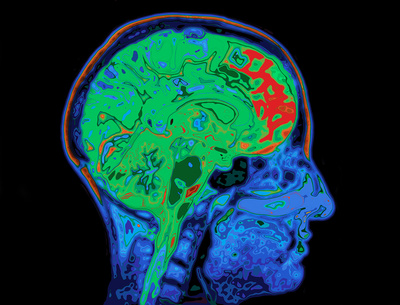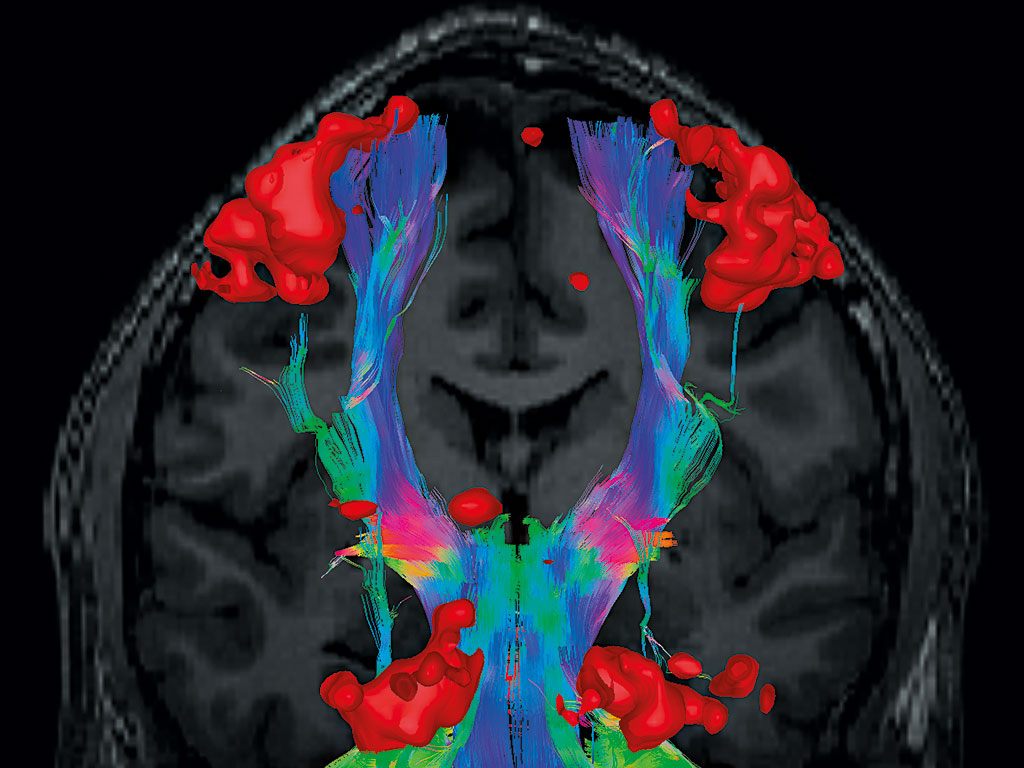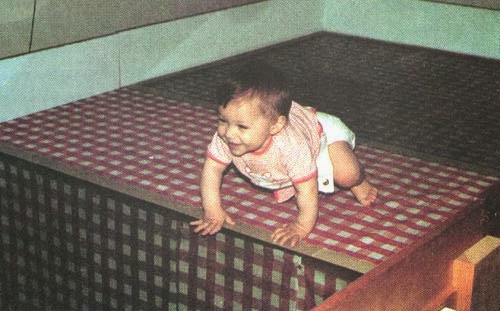The Brain Revolution
Speaker:
Andrew Fountain
Date:
Mon, 2017-11-20 Download audio
The Brain Revolution: New Ideas About Mental Health, Healing and Therapy, With a Christian Response
— Theology Pub, Toronto — Andrew Fountain: Nov 20, 2017
Introduction
- My motivation for my research is the advance of the Kingdom
- I’m very excited that the results of my research will help equip us towards that challenge.
- I’m not going to discuss the question of science vs the Bible
- I believe that the Bible is inerrant and authoritative on every issue it speaks to
- I also believe that God speaks through general revelation, e.g. the way he has designed the universe
- All truth is God’s truth
- So as long as we recognize that the Bible is the final authority, we can value medical and psychological research about the brain
- fMRI
- Limbic system
- Unprocessed memories
- relationships trump method
- Neuroscience of emotions
- Attachment theory
- Dyadic repair
1. Brain Imaging
- In 1991 and 1992 the first papers were published describing a revolutionary new way of watching changes in the brain that indicated activity. This was termed functional magnetic resonance imaging, or fMRI for short.
- As equipment became available, it let to an explosion of knowledge about the brain.
- This led to the discovery of which parts of the brain were active during different events
- A very simplified view of the brain can see it as three parts
- For example, victims of trauma could have a script read to them which described the events that happened while a recording was being made of the brain regions being activated.
- Researchers were shocked to see the rational brain shut-down and the activity in the limbic system
- We don’t have direct control over this part of the brain
- It also explained why anger-management is so difficult
- anger-management training focuses on your rational brain
- but it can be seen that your rational brain is turned off during rage.
- Even more troubling is the discovery that memories can be buried in the limbic system
- e.g. a woman who panics when she sees certain men and she has no idea why
- Her limbic system is spotting a similarity with someone who abused her as a child, and is sounding the alarm as a survival mechanism
- This is why CBT is so ineffective for many problems
- In short, trauma is stored in the limbic system, rewiring the brain in a way that defies cognitive approaches
- Nevertheless, this part of the brain can be transformed, but not simply by logical arguments
- e.g. a study where people who were attacked on the street are taught self-defense and acts out a re-run (van der Kolk, 2014)
- Christian reflection:
- since the “Enlightenment” (beginning in the 1700’s) we have been culturally conditioned to read the Bible through a grid that exalts the rational.
- So we read that we are “transformed by the renewing of our minds”, and read “pre-frontal cortex”, but this word also includes desires.
- Emotions were regarded as animal and something to rise above
- God does not really have emotions, that is a mere anthropomorphism
- The Bible does not present man as simply rational
- Much richer than that
- Christian reflection:
- This is 100% in accord with the Biblical description of humanity
- God, as trinity, has relationship as a fundamental part of himself, and man is in his image
2. A Theory of Mental Illness
- Around 150 years ago, we had no real theory of physical disease
- It was all symptoms: pain in the gut, redness of the eyes, etc.
- Until very recently this has been the state of mental illness
- depression, anxiety —all symptoms
- Finally some coherent models of mental illness are being presented
- However there has been relatively little critical evaluation and response from the Christian community.
- Christian reflection:
- Does this mean that we are not responsible for our behaviour, if it is due to brain changes?
- Yes and no:
- Stroke victims can kill a person and not be held responsible
- We don’t hold someone in the middle of a panic attack up to the same level of accountability
- But even if there are mitigating circumstances, we are still responsible for our actions
- In addition, as we can see, we can do things to help us heal, and one of them is having a deep and trusting relationship with God
- Yes and no:
3. Emotions Drive Change
- Jeffrey M. Schwartz, the discoverer of adult neuroplasticity at UCLA, was a Buddhist but in the last decade has been born again and is a passionate evangelical Christian.
- He developed an effective program for people who suffer from OCD
- He was able to demonstrate that they had actually rewired their brains by overcoming it
- Since the enlightenment our culture would have us believe that we are fundamentally intellectual beings
- We change because we accept something as true
- Our emotions then follow suit
- The Bible doesn’t have a precise set of terms for the brain, but is does say that it’s from our hearts that our behaviour comes
- Evil behaviour flows from the heart
4. Science of Attachment
- What is the most successful therapy?
- Scientific meta-analysis
- Overwhelmingly, it almost doesn’t matter
- It’s the quality of the relationship with the therapist!
- I find this very exciting because this is what Christians should be good at
- We are the love of God manifested to the world!
- Giving advice or coming alongside?
- But not how wise, or clever, or insightful the therapist is
- The old model of therapy is like a doctor/patient with a wise and detached therapist giving words of advice.
- This has been adopted into the Christian world, but it is not Biblical
- However it has been demonstrated that a much more effective model is that the therapist admits their weakness and is willing to feel the pain of the patient.
- When the therapist is willing to admit their own weaknesses, and be vulnerable, then there is a huge increase in effectiveness (Yalom)
- The old model is not a biblical model for helping the hurting
- Christians have adopted the term “Counselling” (sumboulos)
- συμβούλιον consultation, σύμβουλος advisor (never about helping the hurting, but about giving advice) “they took counsel together to kill him”
- The Biblical term is comforter (parakletos)
- Encourage, comfort exhort: παρακαλέω (0104 times), παράκλητος (5) παράκλησις (28) encouragement
Attachment theory
- I would argue that the single biggest advance in psychology in the last 20 years has been the science of adult attachment
- Totally different to a Freudian model, and fits extremely well into a biblical anthropology
- John Bolby observed children. What he saw was radically at odds with his Freudian training
- He teamed up with Mary Ainsworth who devised a standardized test to see how 12-month old children attached to their mothers
- Later Mary Main came up with the Adult Attachment Interview, to test how adults handle close relationships
- It has been found that behaviour at 12-months is a strong predictor of adult behaviour
- Not only that, but axious attachment is passed on to the next generation
- Even grandparents to grandchildren?
- Recent studies at UofT and Ryerson involved 2000 dating couples, and predictions fell in line with expectations
- It is unusual in psychology to get such rigorously repeatable hard results across culture and social groups
- But the cycle can be broken by the experience of a single safe attachment figure
- Christian reflection:
- This is one of the most exciting outcomes to me of this whole enterprise
- It turns out that the Bible is full of attachment language
- Not good for man to be alone
- Communion with God, severed by sin
- Abraham’s entire story is about attachment—can he trust God?
- Covenants are primarily about attachment
- I will never leave you nor forsake you
- Who shall separate us from the love of Christ?
- The Christian community should be a safe place where people can repair attachment styles
- Some of the insights from attachment theory can be a great help
- but being filled with the love of God gives us a unique ability to bring people to healing
5. Attachment Repair
- The curse brought shame and isolation
- People were scared to let themselves be fully seen because of sin
- If at the root of brining healing is the ability to deeply love, then Christians should be the best, because we have the love of God in us
- The famous missionary Hudson Taylor fell deeply into darkness and depression
- What saved him was a powerful emotion experience of union with Christ. He felt the attachment viscerally.
- But it’s just as much God’s love when it comes through another believer
- The deepest human bond we know is betwen mother and baby, where brain scans suggest they are almost operating as one organism
- There is research is in how we can enhance the depth of adult attachment through learning deep attunement
- A skilled and loving therapist can bring deep attunement between themselves and the other that facilitates change and deep healing
- The evidence is that this creates what is termed a “secure base” from which the client can expored their own wounds and come to healing.
- If non-christians can demonstrate this life-changing love, how much more should Christians be able to.
- My belief is that this kind of thing should be happening within the Christian community as we “weep with those who weep”.
Conclusions
- Can non-Christians be healed from mental illness without explicit reference to God?
- Quite clearly they can be
- But God is involved because he has build into us a healing capacity, just as with our bodies
- However, simply being healed has no ultimate benefit unless it leads us to God.
- But I’m going to argue that this healing only occurs because of a vestage of the image of God in us
- And a restored image gives us much more capacity for healing
- Even fallen human beings are still in the image of God, and can still show genuine love
- Mothers still love their babies
- But we should be able to love much more
- Recent research that carefully observes children and adults has led to some wonderfully effective ways of helping people receive love
- The results of this research is to create tools that accelerate the process of experiencing love
- The tools can be used by Christians or non-Christians, but my contention is that we as Christians are far better equipped to give this love because we are God’s children and are filled with his love.
Some extra points I would like to have added to the video:
- Self-dependent or interdependent?
- Psychological thinking since the 1960’s is that the healthy person is the one who is self-sufficient and does not need others.
To be dependent on others is a sign of weakness. (Solomon, 1994)
- However adult attachment research has shown us that this is not how we were created—we were designed to be deeply dependent on one another. (This is not the same as co-dependence.)
- This is in fundamental accord with the teachings of the Bible, where the ideal community, the church, is pictured as a body to which each member is connected and plays a part to meet the needs of the whole.
- In addition to that, members of the New Creation participate in this new life only insofar as they are connected to Christ and depend on him as the branch depends on the vine.
- Psychological thinking since the 1960’s is that the healthy person is the one who is self-sufficient and does not need others.
- Christianity is Unique
- Not only does Christianity teach the centrality of attachment, it is utterly unique in describing a God who desires to be deeply attached to us.
- The fall in Genesis is a severing of personal connection with God.
- The account of Abraham is essentially an attachment story—can Abraham trust that God will be one he can utterly depend on? God is even willing to bind himself to Abraham in a covenant in order that Abraham might know that he is secure.
- Covenants are fundamentally attachment documents and rituals.
- Other major accounts of individuals in the O.T. (Moses, David etc.) follow the same trajectory, with covenant promises being made.
- Secure attachment is to be fully seen and known. David uses such language, e.g. “O LORD, you have searched me and known me!” Ps.139:1
- The New Testament takes this to a huge step further with Jesus who “will not leave us orphans” and from whom “nothing can separate us”
- The ultimate attachment is to be “united with Christ”
- It could be said that if someone was to set about inventing a religion based around an understanding of human attachment they could not come up with anything better than Christianity. However this revelation came thousands of years before modern discoveries.
- To repair attachment damage, it’s not enough simply to love someone
- They must know that they exist in the heart and mind of the attachment figure
- The person must feel deeply safe such that they allow themselves to be seen, and feel understood.
- Remarkably, this is with Jesus, “For we have not an high priest which cannot be touched with the feeling of our infirmities; but was in all points tempted like as we are” Heb 4:15.
- Connections with physical sickness
- There is very good evidence of a strong connection between the emotional damage from a dysfunctional attachment style and some physical sicknesses. (Mate 2004) and chronic pain (Schubiner, Sarno 2007)
- Login to post comments





